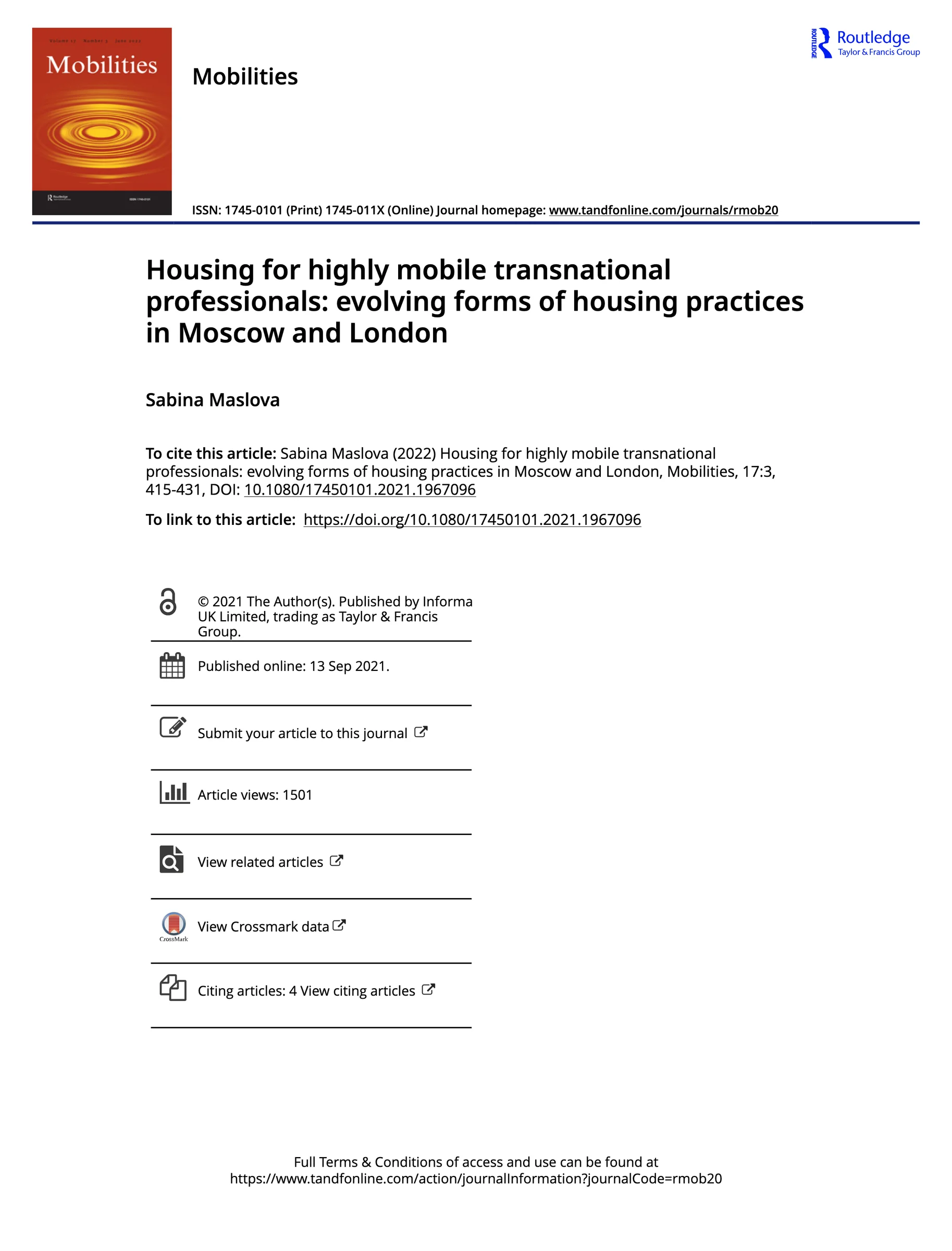AI-Generated Summary
Context and Overview
The paper titled "Housing for highly mobile transnational professionals: evolving forms of housing practices in Moscow and London," authored by Sabina Maslova and published in the journal Mobilities, addresses the housing needs of a growing demographic: highly mobile transnational professionals. These individuals often face significant challenges in finding suitable housing, as most existing housing options cater to settled populations. The study is based on 65 semi-structured interviews with migrants from Western countries living in Moscow and London, shedding light on the unique housing practices that arise from their transient lifestyles.
Key Findings
The research identifies three main factors influencing the housing demands of these professionals. Firstly, economic flexibility is paramount; many prefer shared housing options to minimize costs rather than opting for individual rentals. Secondly, their job-related travel patterns impose time constraints on housing choices, necessitating flexibility in living arrangements. Lastly, despite their mobile lifestyles, these individuals seek physical comfort and access to community amenities, highlighting a tension between their transient existence and the desire for a sense of belonging.
Urban Contexts: Moscow vs. London
Moscow and London serve as contrasting examples of global cities accommodating transnational professionals. London, with its diverse housing market, offers a plethora of options, while Moscow's housing supply is more limited and often unaffordable. The average rent in London was reported at £1,596 per month, which is double the national average. Conversely, in Moscow, rental prices for Western-style apartments range from 90,000 to 130,000 RUB per month, making it challenging for many professionals to find suitable accommodations.
Housing Preferences
The study reveals that many young professionals in Moscow opt for house-sharing arrangements to alleviate financial burdens. This trend is also observed in London, where older professionals engage in similar practices due to high living costs. Economic constraints have led migrants to adopt flexible housing solutions, such as sublets and shared living spaces, which were historically utilized by students and economically disadvantaged individuals. This shift indicates that even among skilled migrants, financial considerations play a crucial role in housing decisions.
Temporal Limitations and Flexibility
Highly mobile professionals often face temporal limitations, necessitating housing arrangements that allow for flexibility. Many interviewed expressed the need for temporary living solutions that align with their career trajectories. In both cities, international companies often support these professionals by providing temporary housing, which alleviates some of the pressure associated with finding suitable accommodations. As a result, subletting and house-sharing have become common practices among this demographic, reflecting their unique living situations.
Conclusion and Implications
This exploratory research sheds light on the evolving housing practices of high-skilled transnational migrants, emphasizing the need for flexible housing solutions that cater to their distinctive needs. With mobility becoming a norm in contemporary work dynamics, understanding and addressing the housing demands of this growing population is essential for future urban planning and sustainable housing initiatives. The findings call for further research into how housing markets can adapt to better serve highly mobile professionals, particularly in the context of changing global work patterns and the implications of recent disruptions such as the COVID-19 pandemic.
